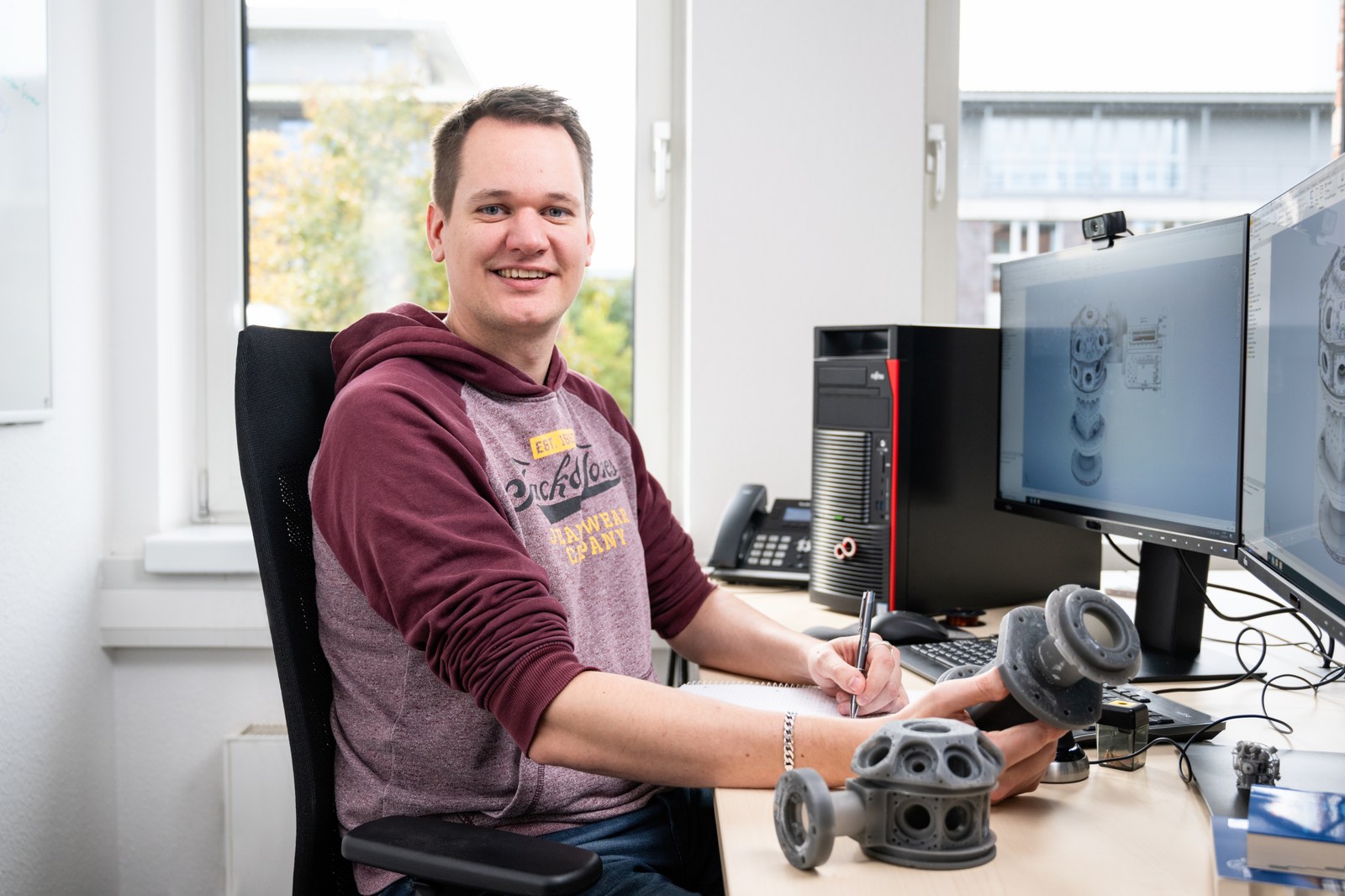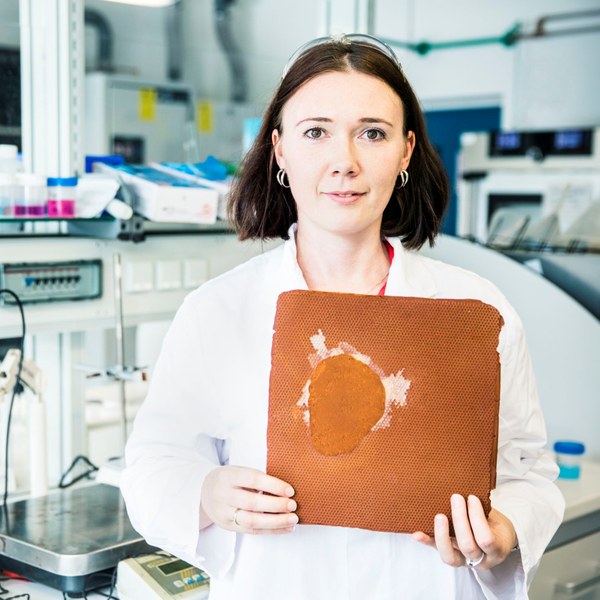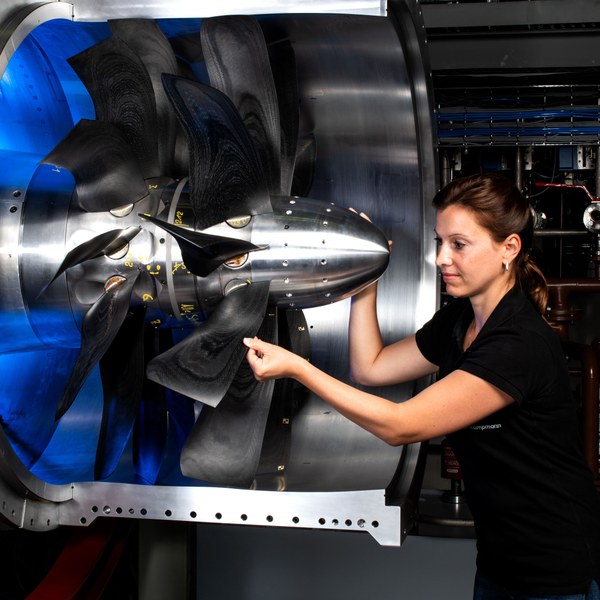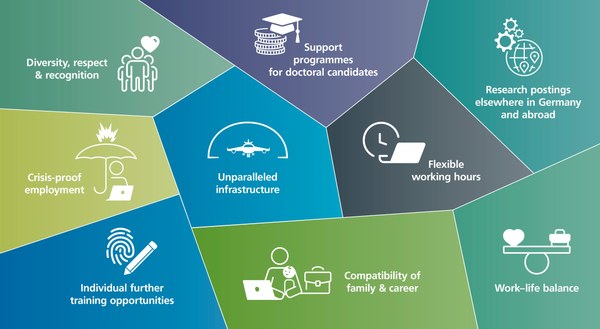Patrick Brunßen
Field of study: Aerospace engineering
Now: Institute for Satellite Geodesy and Inertial Sensing
Patrick Brunßen studied aerospace engineering and is now an AIVT engineer in the Relativistic Modelling Department of the DLR Institute for Satellite Geodesy and Inertial Sensing in Bremen and Hanover. His area of work – assembly and development. He gives us an insight to his work in this interview.
Patrick, what do you look forward to when coming to work in the morning?
Patrick: I’ve never had such friendly and excellent colleagues. You can just tell that everyone is passionate about the project. I learn so much every day and can rely on my colleagues.
What are you researching or working on?
Patrick: I am working on the BECCAL project as an engineer. BECCAL is a quantum experiment for the International Space Station ISS in which we want to – among other things – advance quantum sensor technology. In essence, it is about creating a Bose-Einstein condensate from an atomic cloud and observing it in microgravity. This allows external disturbing forces to be measured with incredible precision. By skilfully splitting and recombining the atomic cloud, you can then control exactly what you want to measure.
„Our results can help to show whether position determination with a quantum sensor is possible and how well it might work“
What does your typical working day involve?
Patrick: I don’t really have a typical working day – and that’s a good thing. I simply can’t do the same thing all the time. I need variety. And that’s exactly what I get at DLR. I have a good mix of office and laboratory work. At the moment, I spend a lot of time drafting documents – marked with my highlights – rapid prototyping with the 3D printer, and visiting and talking to the manufacturers of our components. We are also currently setting up a cleanroom laboratory, which will soon go into operation.

Where and how is your work being used?
Patrick: If everything works out, our results can help to show whether position determination with a quantum sensor is possible and how well it might work. We believe that we can achieve a very high level of precision with a quantum sensor that is simply not possible with conventional sensors in the field of position determination. In addition, we are proving the general functionality of a quantum experiment in space. This will be a big step forward for quantum sensor technology.
„I need variety. And that’s exactly what I get at DLR.“
What are the highlights of your work?
Patrick: My absolute highlight is working together with my physicist colleagues to find solutions to problems. I can solve problems that I didn’t even know existed until now. It gives me a glimpse into a world that was closed to me until recently. There is usually no simple solution – and that's what makes it so appealing.

What special skills can you make good use of in your job?
Patrick: I think my secret superpower is my ability to translate between the individual disciplines. Within the BECCAL project, many different areas of expertise have to be brought together. I don’t want to presume to be better than one of our experts in any one specialism. But I am good enough in all specialisms to be able to liaise between them. And that is always my highlight at work. I learn so much from all the different specialisms. As a career changer, you simply don’t understand quantum physics – you just get used to the constant state of confusion.
Leave us a final thought.
Patrick: At a time when there is of a shortage of skilled labour, DLR must try to remain an attractive employer. The flexible work scheme and accommodating arrangements regarding remote working are a huge plus for me. I hope that this can be continued.




